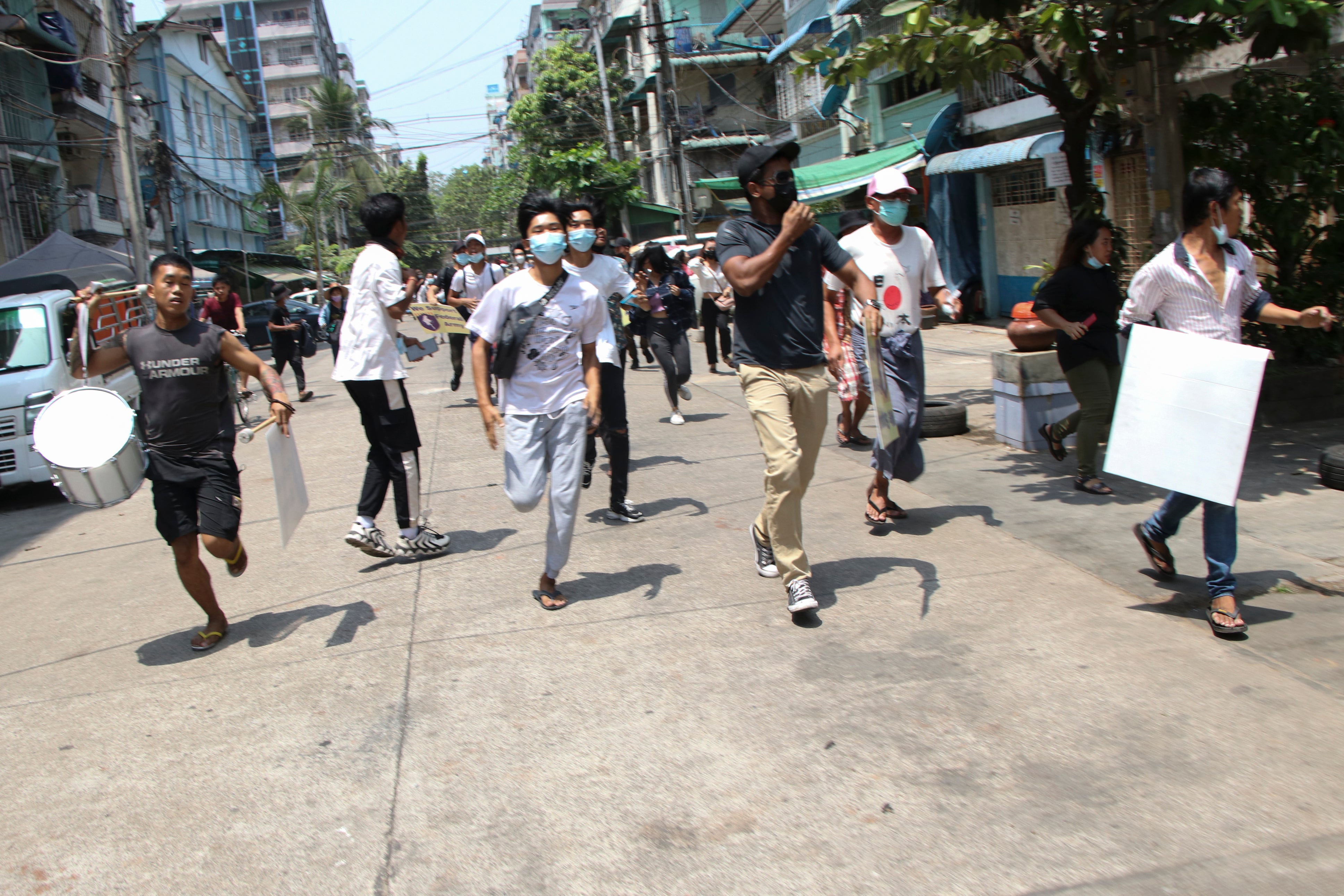UN envoy: Myanmar faces possibility of major civil war
The U_N_ special envoy for Myanmar is warning that the country faces the possibility of civil war “at an unprecedented scale."

Your support helps us to tell the story
From reproductive rights to climate change to Big Tech, The Independent is on the ground when the story is developing. Whether it's investigating the financials of Elon Musk's pro-Trump PAC or producing our latest documentary, 'The A Word', which shines a light on the American women fighting for reproductive rights, we know how important it is to parse out the facts from the messaging.
At such a critical moment in US history, we need reporters on the ground. Your donation allows us to keep sending journalists to speak to both sides of the story.
The Independent is trusted by Americans across the entire political spectrum. And unlike many other quality news outlets, we choose not to lock Americans out of our reporting and analysis with paywalls. We believe quality journalism should be available to everyone, paid for by those who can afford it.
Your support makes all the difference.The U.N. special envoy for Myanmar warned Wednesday that the country faces the possibility of civil war “at an unprecedented scale” and urged the U.N. Security Council to consider “potentially significant action” to reverse the Feb. 1 military coup and restore democracy.
Christine Schraner Burgener didn’t specify what action she considered significant, but she painted a dire picture of the military crackdown in her virtual briefing to the council obtained by The Associated Press in which she also warned that the country “is on the verge of spiraling into a failed state.”
“This could happen under our watch,” she said, “and failure to prevent further escalation of atrocities will cost the world so much more in the longer term than investing now in prevention, especially by Myanmar’s neighbors and the wider region.”
Schraner Burgener urged the council “to consider all available tools to take collective action” and do what the people of Myanmar deserve — “prevent a multidimensional catastrophe in the heart of Asia ”
The coup reversed years of slow progress toward democracy in Myanmar, which for five decades had languished under strict military rule that led to international isolation and sanctions. As the generals loosened their grip, culminating in Aung San Suu Kyi’s rise to power after 2015 elections, the international community responded by lifting most sanctions and pouring investment into the country.
In the virtual meeting, which was closed to outsiders, Schraner Burgener denounced the killing and arrest of unarmed protesters seeking to restore democracy. She cited figures from Myanmar's Assistance Association for Political Prisoners that as of Wednesday, some 2,729 people have been arrested, charged or sentenced since the coup and an estimated 536 have been killed.
The Security Council adopted a presidential statement -- one step below a resolution -- on March 10 calling for a reversal of the coup, strongly condemning the violence against peaceful protesters and calling for “utmost restraint” by the military. It stressed the need to uphold “democratic institutions and processes” and called for the immediate release of detained government leaders including Suu Kyi and President Win Myint.
The statement is weaker than the initial draft circulated by the United Kingdom which would have condemned the coup and threatened “possible measures under the U.N. Charter” -- U.N. language for sanctions -- “should the situation deteriorate further.”
Schraner Burgener told council members she fears that serious international crimes and violations of international law by the military “will become bloodier as the commander-in-chief seems determined to solidify his unlawful grip on power by force.”
“Mediation requires dialogue but Myanmar’s military has shut its doors to most of the world,” she said. “It appears the military would only engage when it feels they are able to contain the situation through repression and terror.”
“If we wait only for when they are ready to talk,” Schraner Burgener warned that “a bloodbath is imminent.”
The U.N. envoy called on those with access to the military, known as the Tatmadaw, to let them know the damage to Myanmar’s reputation and the threat it poses not only to its citizens but to the security of neighboring countries.
“A robust international response requires a unified regional position, especially with neighboring countries leveraging their influence towards stability in Myanmar," Schraner Burgener said, adding that she plans to visit the region, hopefully next week.
Schraner Burgener said intensification of fighting in Kayin State has sent thousands fleeing to neighboring Thailand and Conflict in Kachin State with the Kachin Independence Army near the Chinese border intensified “to its highest point this year.”
Armed ethnic groups on Myanmar’s eastern and western borders are also increasingly speaking out against “the brutality of the military,” she said.
The opposition of ethnic armed groups to “the military’s cruelty ... (is) increasing the possibility of civil war at an unprecedented scale,” Schraner Burgener warned.
“Already vulnerable groups requiring humanitarian assistance including ethnic minorities and the Rohingya people will suffer most,” she said, “but inevitably, the whole country is on the verge of spiraling into a failed state.”